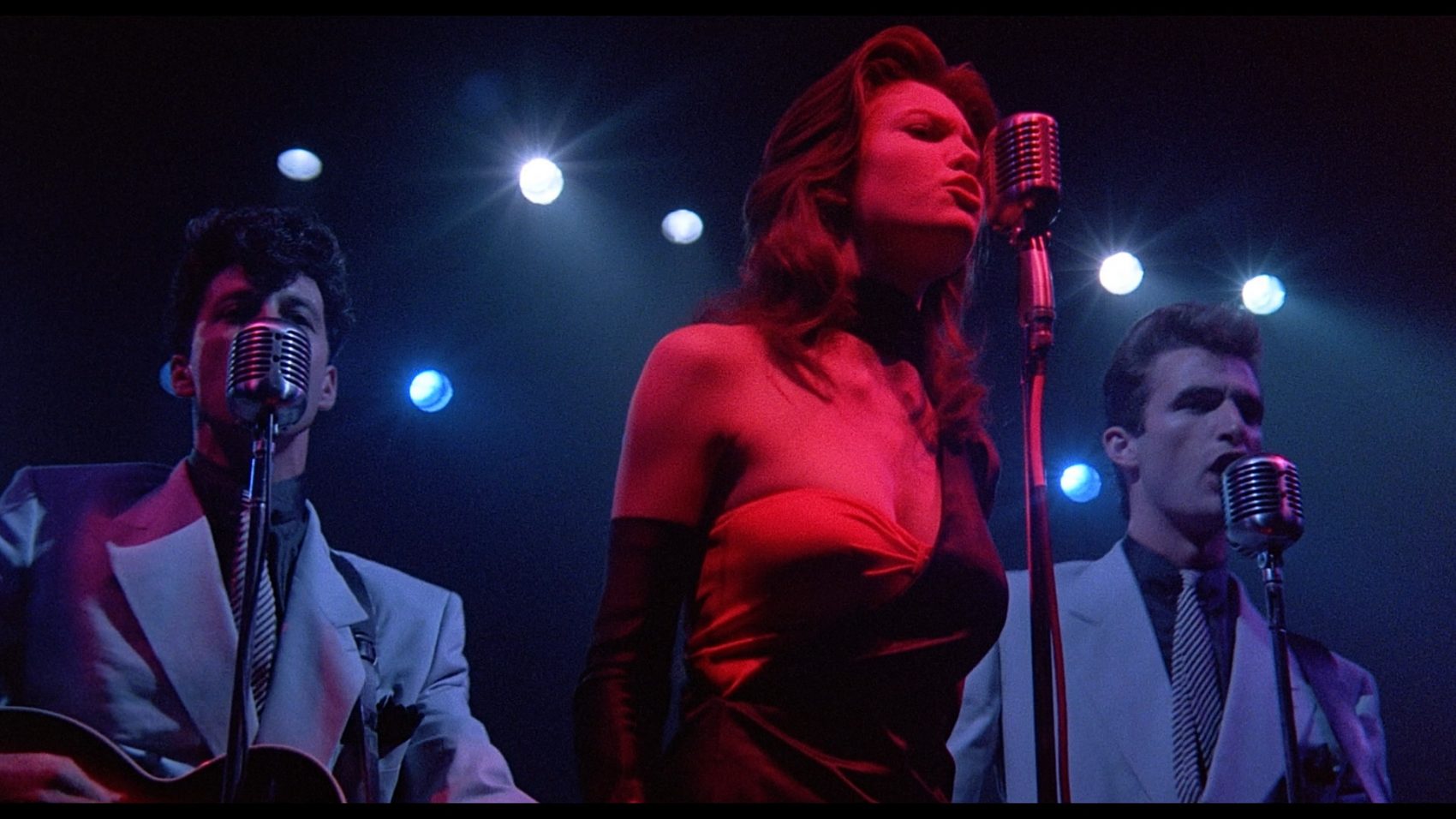The late Jim Steinman was the king of cinematic needle drops
"And the last thing I see is my heart, still beating, breaking out of my body and flying away. Like a bat out of hell."

The name “Jim Steinman,” might not immediately resonate with many, but the rock and roll virtuoso is responsible for some of the biggest hits from artists like Meat Loaf, Bonnie Tyler, Celine Dion, and Air Supply. Jim Steinman was a man who favored larger than seemingly possible music and consistently captured the over-the-top melodramatics of being young, in love, and full of angst through full-chested ballads and rock and roll epics.
Film fans love to get into debates about the best film composers, but there is a true art to choosing licensed music to enhance a film. A recognizable song can immediately manipulate the mood of a scene, and in the best cases, the use of the song in a film becomes so iconic that people have difficulty disassociating the two from one another. Sure, big-named bands like The Beatles or acts like Elvis Presley have their music littered all over cinema, but no other musician has hit quite like Jim Steinman.
The self proclaimed “Little Richard Wagner,” Steinman seamlessly wove catchy pop and rock sensibilities with theatrical orchestration typically reserved for stage musicals, in a style he called “mythically operatic.” He was right--which is precisely what makes his songs absolutely perfect for cinematic inclusion.
“Total Eclipse of the Heart” (originally and iconically performed by Bonnie Tyler and Rory Dodd) is one of the most recognizable earworms of all time. You can barely say the words “Turn around,” without your brain immediately singing “Every now and then I get a little bit lonely and you're never coming 'round” to finish the line. Performed with the gravitas that only Bonnie Tyler can deliver, this song sounds like it was tailor-made to show up in movies.
Harold and Kumar Go to White Castle feature a dance remix of the song in an endearing driving scene, The Dan Band performs a hilariously expletive filled cover during the wedding in Old School, and one of the only renditions to truly match the dramatics of the song is surprisingly in Trolls: The Movie. One of the lead characters, Branch (Justin Timberlake), confesses that he doesn’t sing anymore because his grandma was killed when he was too caught up into the feeling of the song that he didn’t notice the evil “Chef” coming to take him, and his grandma sacrificed her life to save him.
However, it’s the inclusion of this song as juxtaposition in horror movies that really lets it shine. Horror fans couldn’t stop talking about it as the backdrop for a neon-lit pool death scene in The Strangers 2: Prey at Night, a perfect explosion of 80s intensity heightening the stakes of someone fighting for their life while The Man in the Mask stabs the hell out of him. But as far as the best use of the song, the crown goes to the cold open of Urban Legend. Rory Dodd’s haunting “turn around” hits so much harder when following a gas station harbinger played by Brad Dourif screaming at an oblivious young woman “there's someone in the back seat!”
Most people know Jim Steinman from his work with Meat Loaf, penning legendary hits refusing to be limited by something as trivial as time. The eight and a half minute “Paradise By the Dashboard Light” is a staple at karaoke bars, and Paul Rudd’s “dad torturing his kids” car sing-a-long with a mouthful of fast food in This is 40 truly captures that energy. It doesn’t matter that he sounds horrible, it doesn’t matter that his kids would rather jump out of the moving vehicle than listen to him sing any longer, when Meat Loaf and Ellen Foley duet, you have to sing out!
The latest updates, reviews and unmissable series to watch and more!
However, the unironically best example comes from the already super-meta Josie and the Pussycats. “Paradise by the Dashboard Light” as a song moves. The repetition of the opening theme sounds perfect for running, not unlike John Wiliams’ orchestration in the airport scene of Home Alone. As the band runs through Riverdale after having the cops called on them, they stop, blasted by headlights to the roaring chorus of the song. “I can see paradise by the dashboard light” wails into our ears as movers carrying a sign reading “#1 Band in the World” floats behind them, all from the perspective of Alan Cumming holding up a CD to feign an album cover, above his dashboard. It is the single most perfect use of this song in cinema history.
“I’d Do Anything for Love (But I Won’t Do That)” has been used as an emotional swelling sound cue in films like The Vow and due to its ominous lyrics, as tongue in cheek commentary in the raunchy sex comedy Sausage Party or the 50 Shades of Grey mom-comedy, Book Club. Taylor Dayne covered “Original Sin,” a song Steinman wrote for Pandora’s Box that was used as the theme for the Alec Baldwin superhero flick, The Shadow. Maybe I’m biased, but it’s easily the best part of the movie.
His other venture with Bonnie Tyler, “Holding Out for a Hero” is massive, bombastic, and Bonnie Tyler is truly going harder in this song than she’s ever gone in her entire life, all to serve as the sound for a game of *checks notes* tractor chicken. Originally recorded for the Footloose soundtrack, the song became a needle drop when featured in its original form and via cover performances everywhere from Shrek 2, Detective Pikachu, Short Circuit 2, Who's Harry Crumb?, Bandits, Nacho Libre, and The Angry Birds Movie 2.
Look, the man has a career thicker than a phone book so featuring everything is impossible, but if there’s one constant with the work of Jim Steinman, it’s that he makes everything and every scene better. One of the strongest moments in the entire series of Glee is Lea Michelle’s show-stopping rendition of “It’s All Coming Back to Me Now” that sounds a bit more Pandora’s Box than it does Celine Dion in the best way possible.
The cult classic Streets of Fire is filled with music written by masters like Stevie Nicks and Tom Petty, but it’s Steinman’s songs "Nowhere Fast” and “Tonight is What it Means to be Young” that stand the test of time, likely because he reworked pieces from his solo work to create the perfect songs.
The music world lost an auteur, a maestro, a legend, but if we’re lucky, movies will continue to continue breathing new life into his work by continuing to include them on soundtracks. Our movies will be better because of it.
"If you don’t go over the top, you can’t see what’s on the other side.” - Jim Steinman
BJ Colangelo is an award winning filmmaker and film analyst specializing in dismissed cinema and television. She writes about horror, wrestling, musicals, adult animation, sex and gender, kicking pancreatic cancer’s ass, and being a fat queer in places like Fangoria, Vulture, The Daily Dot, Autostraddle, Playboy.com, and a handful of books college students get assigned to read. She’s also the co-host of the teen girl movie podcast, This Ends at Prom, with her wife, Harmony.


